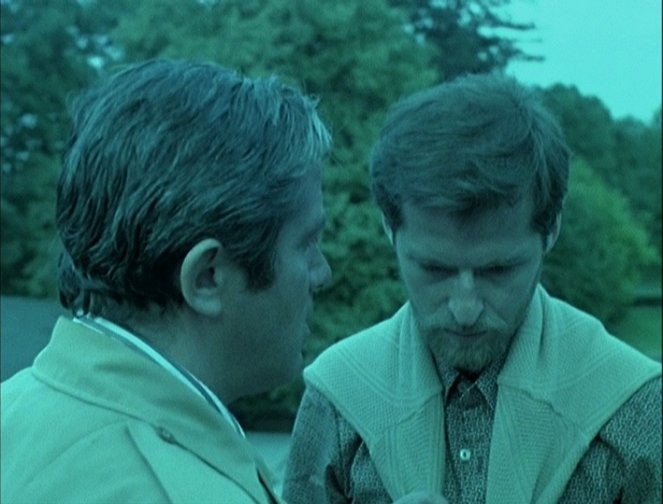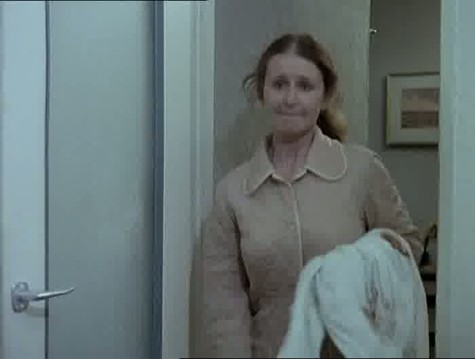Reżyseria:
Krzysztof KieślowskiZdjęcia:
Jacek PetryckiMuzyka:
Krzysztof KnittelObsada:
Jerzy Stuhr, Małgorzata Ząbkowska, Ewa Pokas, Stefan Czyżewski, Jerzy Nowak, Tadeusz Bradecki, Marek Litewka, Bogusław Sobczuk, Krzysztof Zanussi (więcej)Opisy(1)
Trzydziestoletni Filip Mosz jest zaopatrzeniowcem w zakładzie przemysłowym w podkrakowskim miasteczku. Momentem przełomowym w jego życiu staje się kupno amatorskiej kamery filmowej. Filip jako człowiek bez reszty oddany rodzinie, pragnie uwiecznić narodziny i rozwój swojej córki. Wieść o zakupie Mosza obiega zakład pracy. Filip otrzymuje propozycję nakręcenia filmu z okazji pięciolecia istnienia przedsiębiorstwa. Wkrótce powstaje amatorski klub filmowy, nad którym dyrektor zakładu obejmuje protektorat. Od tej chwili Filip Mosz nie rozstaje się z kamerą. Bezkompromisowo pokazuje wynaturzenia otaczającej go rzeczywistości. Staje się społecznikiem i artystą wrażliwym na ludzką krzywdę i niesprawiedliwość. Coraz więcej czasu poświęca swojej pasji zaniedbując dom i rodzinę. Przekonuje się, że jego działalność nie tylko pomaga, lecz także rodzi konflikty. Poznaje wagę odpowiedzialności, granice wolności twórczej, cenę uczciwości. Po zasadniczej rozmowie z dyrektorem Filip postanawia zrezygnować z kręcenia filmów, nie chce bowiem, by szkodziły one komukolwiek. Wraca do domu, ale żona odeszła już z dzieckiem nie mogąc znieść stałych napięć i konfliktów. Filip kieruje kamerę na siebie i zaczyna opowiadać historię swego życia... (TVP)
(więcej)Materiały wideo (1)
Recenzje (3)
There is probably no point in going into a long discussion of what Krzysztof Kieślowski wanted to point out with this film about filmmaking. This has been discussed in some detail by many others before me. I was most struck by the depiction of the fact that when a person's hobby goes over his head and becomes an obsession, he may unwittingly lose everything that mattered in his life up to that point. I also had unpleasant feelings of anxiety about the pervasive socialist way of thinking and acting. (85%)
()
One of the greatest classics of Polish cinema, brimming with the enthusiasm of beginner filmmakers who would just grab a camera to shoot what they liked. It also holds a pointing finger as a warning sign to the way the lens of a camera can twist the perception of reality and subvert the approach to previously unshakable family values – in other words, how the quest for the right shot can become more intimate than the love for one’s own wife and children. In any case, Camera Buff is another wonderfully directed film by Krzysztof Kieślowski, who again combines stylistic approaches into a purposeful thematic structure, while playing with the aesthetics of amateur cinema in a constructive and coherent way. This is a movie about filmmaking and filmmakers gradually gaining new approaches and perspectives, with which they not only look and their subjects, but also at their own lives and the interpretation thereof. 85%
()
One of the fundamental works of Polish films of moral unrest, which gave Krzysztof Kieslowski a well-deserved reputation as an exceptional filmmaker. The film is influenced by Kieslowski's documentary roots, but it never bores. It is not a straightforward entertaining spectacle, but rather a socially critical exploration of life in stagnating Poland of the late 70s. At the same time, it is a tribute to all film enthusiasts, those who succumb to the world of cinema and are willing to sacrifice a lot for it. The protagonist, Filip, is so captivated by capturing the world around him on film material that he pays for his passion with the loss of his family background and serious conflicts at both work and in his personal life with his friends. It is a film about censorship and self-censorship, which every filmmaker carried within themselves under the totalitarian regime and which ultimately exists in any system in a modified form. There are doors everywhere that you are forbidden to enter, and their opening comes with a price. The depiction of reality is sometimes painful and dangerous. Kieslowski found an excellent performer in Jerzy Stuhr for the main role, and it was also one of the films that helped Stuhr launch his career. Overall impression: 90%. The film has received a very decent collection of awards at film festivals. It is also interesting in that it features the prominent Polish director Krzysztof Zanussi.
()
Galeria (47)
Photo © Kino Video



Reklama